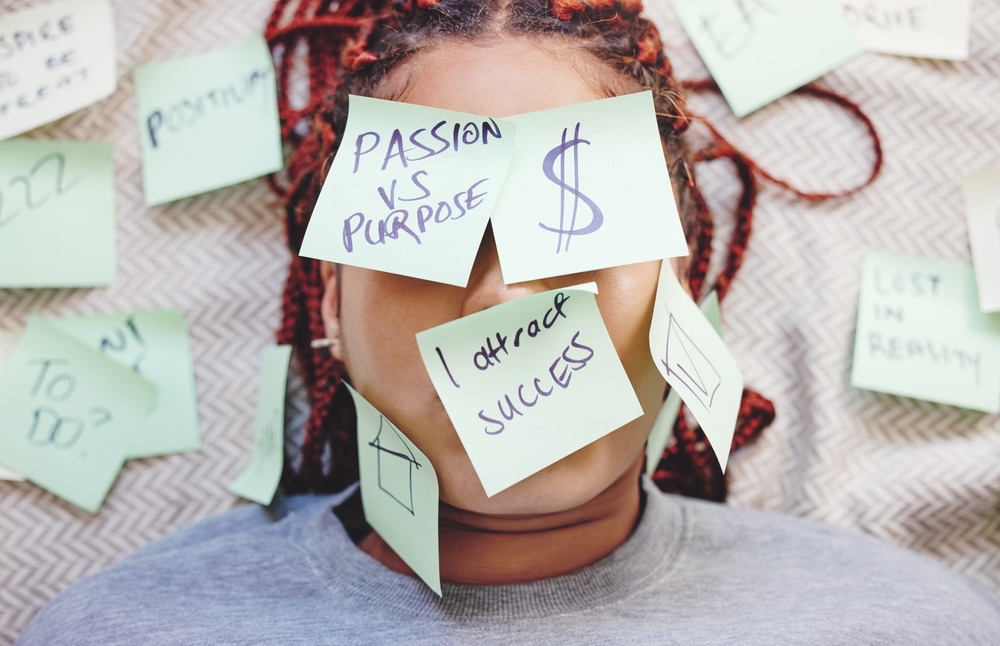Maybe we shouldn’t be manifesting this New Year
Every week, PhilSTAR L!fe explores issues and topics from the perspectives of different age groups, encouraging healthy but meaningful conversations on why they matter. This is Generations by our Gen Z columnist Angel Martinez.
As a Type A Virgo moon, I normally find peace in the liminal period between Christmas and New Year’s Day, or what I call “planning season.” This year, however, was different.
Like most members of Gen Z, I bought into the New Age idea of manifestation—an ancient principle, repurposed into a pillar of the modern self-care movement, that dictates we can will our dream lives into reality. The concept reentered the mainstream in the pandemic: a result of our collective desire for some semblance of control amid peak uncertainty. Others choose to write letters from their future selves or recite positive affirmations before a mirror. Angel numbers and certain sound frequencies are also popular techniques.
My weapon of choice has always been the vision board: a visual representation of my highest self. And while I’ve accomplished a bulk of what I set out to do in 2024, I couldn’t help but fixate on what I didn’t: return to boxing (what about my monthly nail appointments?), build a capsule wardrobe (I love my colorful maxi skirts too much), and work in Makati (who would have thought I’d still be freelancing full-time?). If I can simply envision my wishes into existence, isn’t my inability to do everything all at once simply a sign of my inadequacy?

Seems like a stretch, I know. Manifesting is so easily dismissed as a pseudoscience, a bunch of Western woo-woo. But given the conditions and context Gen Z grew up in, I reckon it makes sense. “Manifestation is related to a psychological concept called self-efficacy, or a belief in our own competencies. Somehow, it’s also aligned to the very Filipino value of resilience: believing in positive outcomes amid adversity,” licensed psychometrician and content creator Justine Danielle Reyes explains to PhilSTAR L!fe. “Now that our generation is skeptical and critical of longstanding traditions and institutions, we buy into this idea because faith alone is no longer enough.”
In this way, manifestations are also born out of necessity. “As we can see in the personal development side of the internet, people think of these out-of-this-world goals for themselves despite their material conditions because they feel that’s the one way they can power through,” Reyes elaborates. And in this sense, it could be the harbinger of positive effects.
Research shows that those who “believe in an internal locus of control, or that their fate is largely determined by their actions” are mentally prepared to achieve set objectives and make healthier choices in pursuit of them. As self-confidence soars through the roof, it’s natural that we advocate for ourselves and our skills more in personal and professional environments.
But some people simply manifest and leave it at that, when no higher power ever works wonders without human action. Worse, they may engage in reckless behaviors under the guise that the universe will protect or even reward them. Manifesters were more likely to be drawn to risky investments: 40% may have experienced bankruptcy, while 30% might have invested in cryptocurrency, with an unfounded belief that they could achieve success quickly.
Such hubris only works if life always goes according to plan. We can’t accurately predict the kind of person we become, or what priorities we’ll have as the year progresses. (Maybe December 2023 me wanted to have a sport, or at the very least, a regular physical activity that gets me off the couch. To my dismay, December 2024 me couldn’t care less!) Nor can we control the factors that largely determine our chances of success: the family we were born into, the events that shaped our past, and even timing and luck. Our metrics-driven, meritocratic society doesn’t take these into consideration, though, which could lead us to guilt, shame, and sadness when we inevitably fail.

This is particularly true for those who struggle with anxiety, depression, and OCD. A common tenet among some manifesting advocates is that “when something bad happens to someone, it is only because their thoughts summoned that result, and so their misfortune only proves that they are flawed.” What then does this say for those whose thoughts, feelings, and dispositions are inherently negative?
So for 2025, I’ve decided to ditch the well-curated Canva deck in favor of what I call ground rules: principles or axioms that will guide me through any decision I have to make. By freeing myself from this self-imposed pressure to achieve what no longer aligns with my life path, I open myself to forces that could shape my life for the better. Reyes, on the other hand, has made her own bingo card: “This could be effective for me because rather than simply listing things, there’s an expectation to cross them out. I was motivated to put down even crazier dreams and I feel it’ll push me to be more courageous.”
Other strategies Reyes recommends include dividing goals into quarters to create a sense of urgency, as well as breaking big manifestations into small and actionable steps. “I like asking myself, ‘What’s something that I can do today to help move me closer to my goal by the end of the week?’ Time will pass anyway—showing up consistently will make all the difference,” she says.
Most importantly, I’ll be taking a much-needed step towards changing my relationship with goal-setting, and I hope you do, too. Manifesting instills in us the belief that we are special, unique, and equipped enough to make it on our own. But perhaps that was never the goal. It may be counterintuitive to us Filipinos but our culture is already too individualistic for my liking. Why should I treat my trials as my sole cross to bear? Why are my words and wishes just reserved for my success? I am surrounded by people who unconditionally love and root for me—if anything, not only are they willing to help me, I am also able to help them.
As Reyes shares, “One of the main lessons we can learn as we enter the new year is that needing others isn’t a bad thing. There’s a meme online that goes, ‘Maybe it’s the friends that we made along the way.’ And to an extent, that’s true. It’s the people who genuinely like us, who encourage us to be a better version of ourselves that contribute to how fast or how soon we receive what we set for ourselves.”
Generations by Angel Martinez appears weekly at PhilSTAR L!fe.



